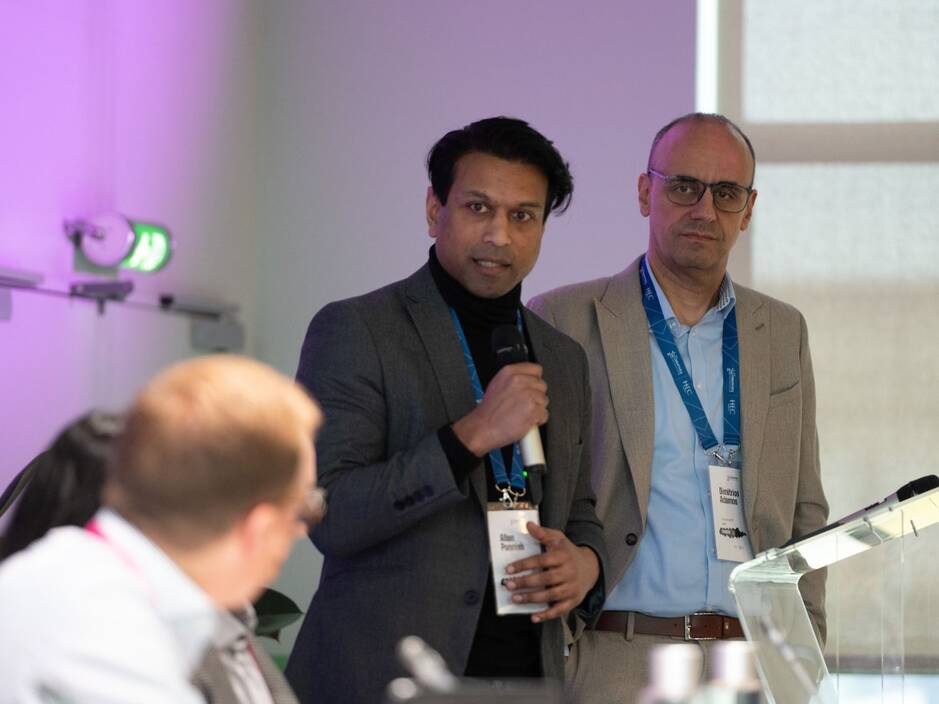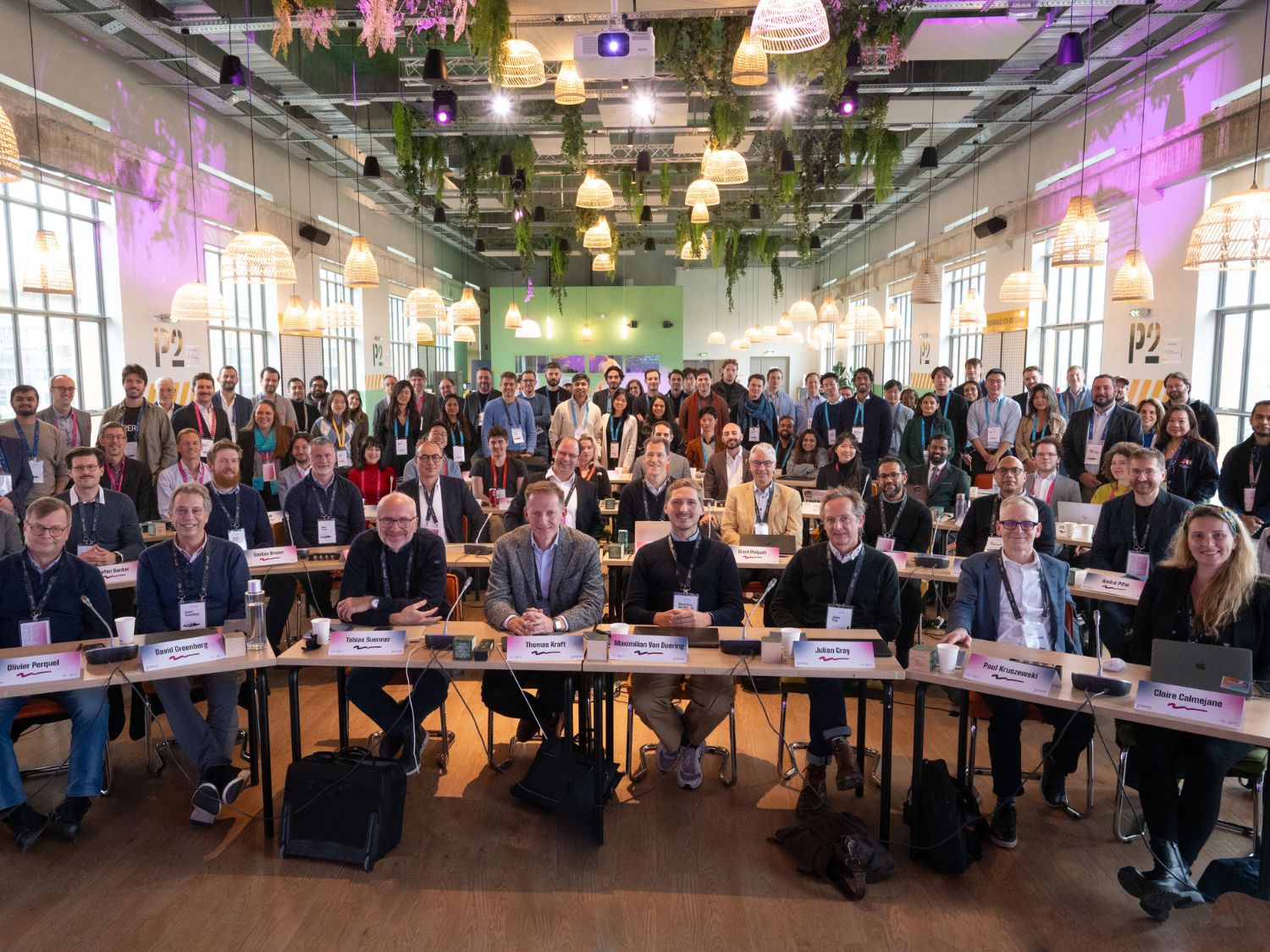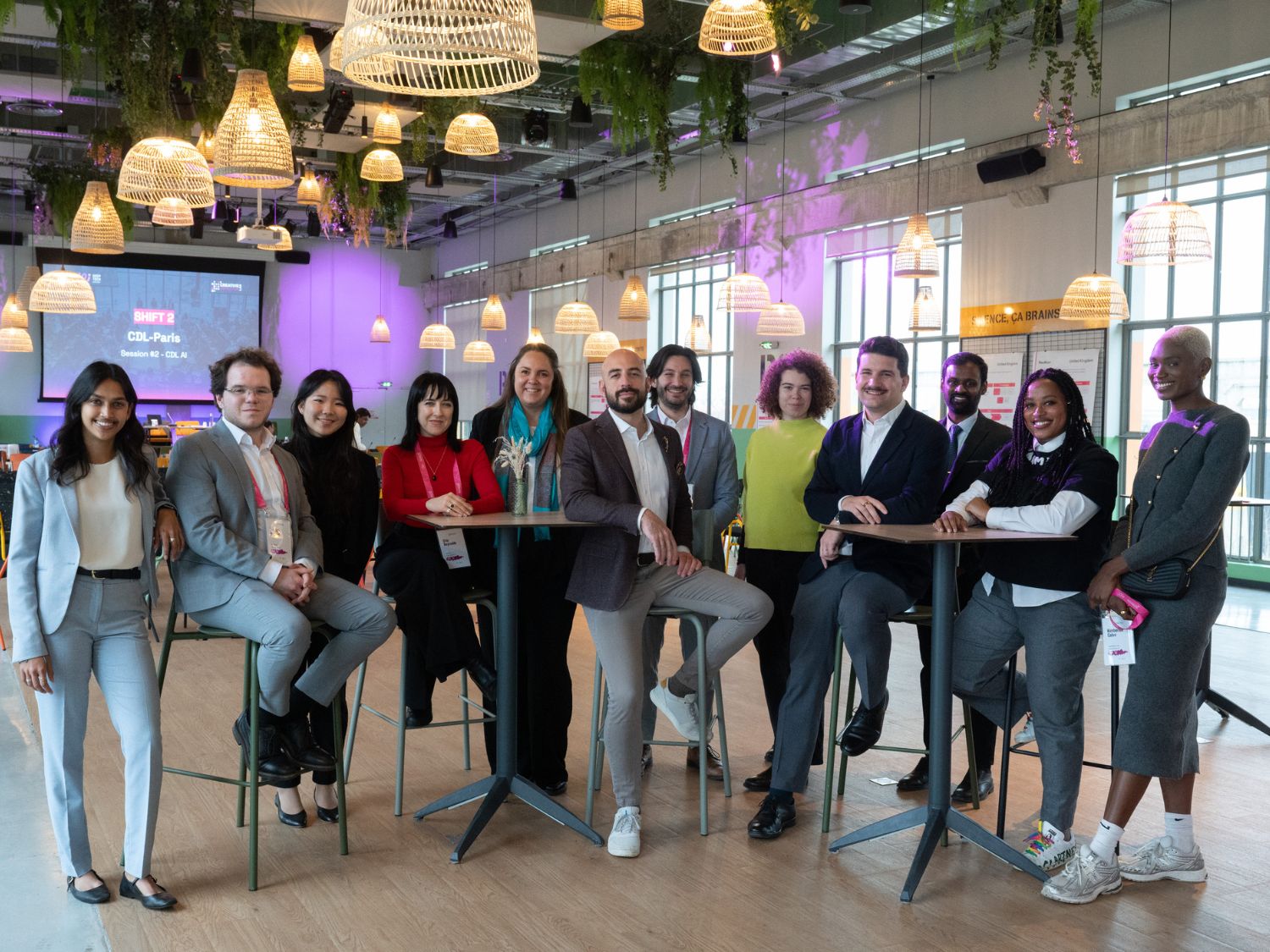Cracking the Code: The Real Challenges Facing AI Entrepreneurs
While AI breakthroughs are happening faster than ever, turning scientific innovation into scalable businesses is rarely straightforward. This is especially true for deep tech ventures working with powerful, flexible AI technologies that could theoretically apply to dozens of industries. In this article, we explore the different challenges founders of AI startups are facing, especially in building deep tech startups.

Allan Ponnish and Dimitrios Adamos, CDL-Paris Venture Founder (Cogitat)
That was the key insight emerging from the latest session of the CDL-Paris Artificial Intelligence Stream, held in December 2024 at the Arboretum, Europe’s largest solid wood campus near Paris. Founders, mentors, and experts from around the world gathered to confront one key question:
“We know our AI technology works, but who exactly will pay for it?”
The challenge of too many possibilities
For many early-stage AI companies, the challenge isn’t proving that their technology works — it’s figuring out where to apply it first.
This was a recurring theme during the latest session of the AI Stream at the Creative Destruction Lab (CDL-Paris). We spoke with team members, mentors, and founders about the biggest hurdles AI ventures are facing inside the program, and one of the most common is navigating their go-to-market strategy.
A clear example comes from Cogitat, a company building foundation models capable of decoding human brainwaves using external EEG sensors. Their groundbreaking technology sits at the intersection of neuroscience and cutting-edge AI, opening up potential applications across multiple industries — from healthcare and defense to consumer technology.
But this wide range of possibilities also creates a critical risk: a lack of focus.
“AI presents vastly different technology and application areas, the applications are endless,” explained Nicole Pereira, CDL-Paris AI Stream Lead. “But we really need to understand: what market do we actually apply this technology to first?”
That strategic tension is something Allan Ponnish, Co-founder of Cogitat, knows well.
“We’ve put forward a number of different markets to CDL — healthcare, defense, and consumer technology are the three big areas we’ve explored. Now we really need to figure out: which one is the best place to start?”
Finding the beachhead market
This is where CDL’s model becomes invaluable. The program forces founders to tackle one of the hardest challenges in AI commercialization: identifying their beachhead market. The first real-world use case where the technology can create value, attract customers, and generate revenue.
“They have a technology, but they don’t yet know who is going to use it.” explained Thomas Astebro, professor at HEC Paris and CDL-Paris member. Finding the product-market fit in AI-powered startups is not only about building cool features, but also about deeply understanding customer pain points, user needs, and real-life workflows.
Finding Focus: Turning AI Technology Into a Business
“What is our beachhead market?”, “How do we identify the right niche?”, “How do we know we’ve found the right customer profile to go after?”... Nicole Pereira, who brings the experience of being the AI Lead for the Creative Destruction Lab program, believes that everything from pricing to marketing to product design depends on solving this puzzle. This is where many deep tech AI founders face their biggest leap: moving from technology validation to commercialization.
“We know our technology works in so many different areas, but now we need to focus on where to deploying it.”
- Allan Ponnish, Co-founder of Cogitat (CDL venture)
That process involves more than customer discovery. It means:
- Designing a product customers will actually buy
- Building a go-to-market strategy tailored to that first niche
- Testing business models and pricing assumptions
- Aligning marketing strategy with early adopters
- And above all: staying laser-focused
Without this clarity, even the most powerful AI models risk becoming technological solutions looking for a problem.
Why Creative Destruction Lab matters for AI founders
The CDL-Paris AI Stream exists precisely to support founders through this critical transition: from lab to market, from innovation to product. CDL mentors - including exited entrepreneurs, AI scientists, investors, and industry experts — help startups sharpen their value proposition, pressure-test their market assumptions, and chart their commercialization strategy.
Because CDL is a non-profit organization, with no fees or equity taken, the only agenda is venture success. For AI founders navigating overwhelming technological possibilities, Creative Destruction Lab provides what’s often hardest to find: brutal honesty, strategic clarity, and a global network of experts willing to help them crack the code.
What’s next: Marseille
The journey continues: In April 2025, the CDL-Paris AI Stream will converge in Marseille at TANGRAM, CMA CGM's new innovation hub, for its final session. There, AI ventures will stand alongside startups from CDL's Climate, Space, and Next Generation Computing streams to share their progress, demonstrating not just technological refinement, but real-world implementation.
Because ultimately, AI transcends algorithms. It's about building genuine companies that solve real problems.

